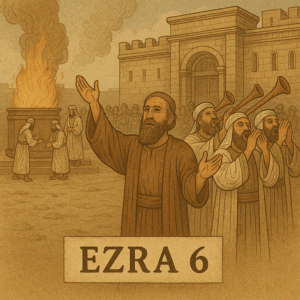Introduction.
1 Samuel Chapter 11 tells the story of Saul’s first military victory as king of Israel. When the Ammonites threaten the city of Jabesh Gilead, Saul rises to the occasion and leads the Israelites into battle, securing a decisive victory. This chapter highlights Saul’s leadership, the unity of Israel under his kingship, and God’s favor in delivering His people from their enemies.
The threat from the Ammonites.
The chapter begins with Nahash, the king of the Ammonites, besieging Jabesh Gilead. The people of Jabesh Gilead, realizing they cannot defend themselves, offer to make a treaty with Nahash. However, Nahash gives them a brutal ultimatum—he will only make peace if they allow him to gouge out the right eye of every man, a disgraceful condition meant to humiliate Israel.
Desperate for help, the elders of Jabesh Gilead ask for seven days to seek assistance from the rest of Israel. If no one comes to their aid, they will surrender to the Ammonites. The message is sent throughout Israel, and it reaches Saul, who is filled with righteous anger at the news.
Saul rallies Israel for battle.
Moved by the Spirit of God, Saul takes immediate action. He cuts up a pair of oxen and sends the pieces throughout Israel with a message, calling the people to follow him into battle against the Ammonites. His message is clear: anyone who does not join the fight will face a similar fate as the oxen. The fear of the Lord falls upon the people, and they rally to Saul’s call in great numbers.
Saul organizes the army and leads them to Jabesh Gilead. Arriving in the early morning, they launch a surprise attack on the Ammonite camp, defeating them decisively. The victory unites the people of Israel under Saul’s leadership and solidifies his position as their king.
Saul’s humility and thanksgiving.
After the victory, some people suggest that those who doubted Saul’s ability to lead should be put to death. However, Saul refuses, attributing the victory to the Lord and declaring that no one will be punished. This act of humility demonstrates Saul’s recognition of God’s hand in the battle and his desire to unite the nation rather than divide it through retribution.
The chapter concludes with a celebration at Gilgal, where the people formally reaffirm Saul as their king and offer sacrifices to the Lord in gratitude for His deliverance.
Key lessons from 1 Samuel Chapter 11.
- Leadership inspired by God: Saul’s leadership in this chapter is driven by the Spirit of God, showing that true leadership comes from following God’s guidance and acting in faith.
- Unity in the face of crisis: Saul’s ability to unite Israel demonstrates the power of collective action and faith when faced with challenges. The people’s response shows that God can bring unity through a common cause.
- Humility in victory: Saul’s refusal to punish those who doubted him reveals the importance of humility in leadership. He gives glory to God for the victory and seeks to maintain peace and unity.
Conclusion.
1 Samuel Chapter 11 is a powerful story of leadership, unity, and God’s deliverance. Saul’s victory over the Ammonites marks the beginning of his reign as Israel’s king and demonstrates that when God’s people are united under His guidance, they can overcome even the most daunting challenges. As we reflect on this chapter, let us remember the importance of humility, faith, and reliance on God in our own lives.




